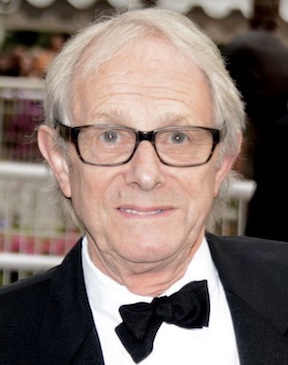On this date in 1936, filmmaker Kenneth Charles Loach was born in Nuneaton, Warwickshire, England, the son of working-class parents Vivien (née Hamlin) and John Loach. He joined the Royal Air Force at age 19 and later read law at St. Peter’s College-Oxford while participating in the Experimental Theatre Club.
He started working at the BBC in 1963 as a trainee television director. Loach became a critical darling in 1969 with his second feature film “Kes” about a troubled boy who turns to falconry to find fulfillment. The British Film Institute has listed it as the seventh best British movie ever.
He drew renewed attention in 1990 with “Hidden Agenda,” a thriller harshly critical of British policies in Northern Ireland. This was followed by “Riff-Raff” (1991) and “Raining Stones” (1993), which dealt with working-class issues, and “Land and Freedom” (1995), a highly moving dramatization of the Spanish Civil War.
With the help of screenwriter Paul Laverty, Loach went on to greater acclaim with movies such as “Carla’s Song” (1996), “My Name Is Joe” (1998), “Bread and Roses” (2000) and “Sweet Sixteen” (2002). Encyclopedia Britannica calls his films “landmarks of social realism.”
Two of his films — “The Wind That Shakes the Barley” (2006), about the Irish struggle for independence, and “I, Daniel Blake” (2016), about a man who survives a heart attack only to be stymied by bureaucracy — have won the Cannes Film Festival’s top prize, the Palme d’Or. Most recently as of this writing, Loach directed “The Old Oak” (2023), about Syrian refugees in England, which he has said will be his final film.
Loach married Lesley Ashton in 1962. They have two sons and two daughters. Another son died at age 5 in a car accident in 1971. He declined knighthood in 1977, and in a March 2001 interview said, “It’s all the things I think are despicable: patronage, deferring to the monarchy and the name of the British Empire, which is a monument of exploitation and conquest.”
Loach is a strong supporter of the British Humanist Association. On the Humanists UK website, he said: “Freedom of belief – or nonbelief – is a fundamental human right. Religious creeds and doctrine should play no part in our public life. In particular, the indoctrination of children in separate faith schools is pernicious and divisive.”
PHOTO: Loach at the 2014 Cannes Film Festival; photo by Georges Biard.


